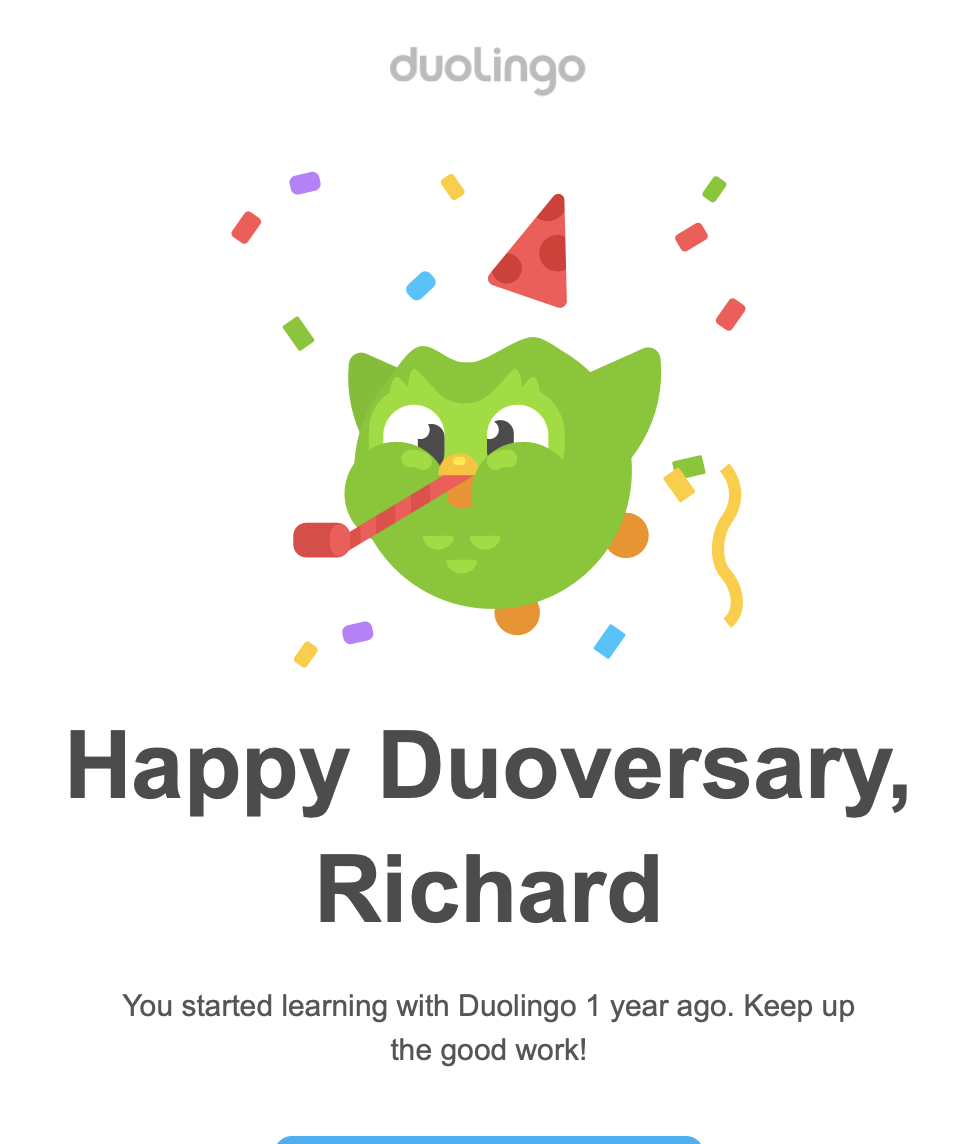Day: 17 February 2020
-

Video Podcasts as a way to avoid Algorithms
Reading Time: 3 minutesToday I opened YouTube, looked at the choice of videos and thought “I don’t feel like watching any of this content because of its headlines”, whilst eating lunch. Instead, I tried something less habitual. I opened the podcast app on my laptop and looked for videos that might be interesting. I ended…
-

It’s my Duoversary
Reading Time: 2 minutesA year ago today I signed up to Duolingo and started studying German on a daily basis, and occasionally played with other languages. I complimented this with listening to podcasts in German almost daily and making other attempts to learn languages. I went from trying to get fifty experience points a day…